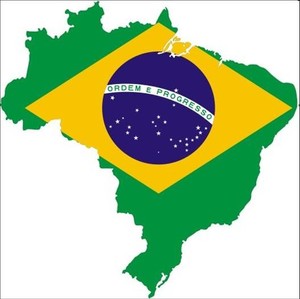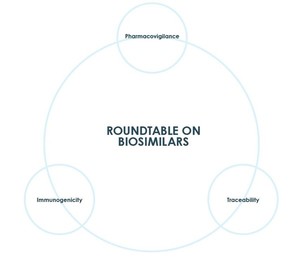As pointed out by Managing Editor, Ms Maria Fabiana Jorge, in the Editorial of the Journal of Generic Medicines, Volume 6, Issue 4 of August 2009, countries around the world define the future pharmaceutical market, we must learn from the past to avoid making the same mistakes or falling into new ones. Unfortunately, the current system has serious flaws and it seems that we are moving towards creating others in the new one. It is essential that governments, the pharmaceutical industry and civil society throughout the world work closely to strike a better balance between innovation and access in the context of biotechnology medicines.
Ms Jorge states that we all know that the future of the pharmaceutical market lies in biologicals. Biotechnology patents have begun to expire and some governments are starting to define the rules of the game of the future. Wherever we look we can see red flags. In July 2009 the European Commission issued its final report on the Pharmaceutical Sector Inquiry. The report documents the various actions that the innovative industry has engaged in to delay generic competition, thus obtaining undeserved profits at the expense of consumers. Unfortunately, this is not just a European problem, as it has been consistently mirrored in many other countries. A few years ago, the US Federal Trade Commission (FTC) also issued a report addressing some strategies used by innovative companies to delay competition.
According to Ms Jorge, the legitimate protection of intellectual property rights has been frequently misused to extend monopolies by excluding or delaying generic competition. Throughout the years the innovative industry has succeeded in obtaining higher levels of protection: patent terms of 20 years, patent extensions, linkage between marketing approval and patent status, data exclusivity periods, paediatric exclusivity, etc, all of which are part of the repertoire used by the innovative companies to block generic entry. Pope Benedict XVI himself has said in an encyclical letter recently made public that “on the part of rich countries, there is excessive zeal for protecting knowledge through an unduly rigid assertion of the right to intellectual property, especially in the field of health care.”
Ms Jorge argues that as countries define the legal pathway for the approval of follow-on biologics or biosimilar drugs, the US Congress does not seem to be taking notice of the concerns expressed by the Pope, independent agencies of the US Government or the White House itself by considering granting a period of 12 years for the protection of data submitted for the approval of biotechnology drugs. Indeed, in June 2009 the US FTC published a report which refers to the request of biotechnology companies regarding the adoption of a period of 12–14 years of data exclusivity, and concludes that “because there is no evidence about the lack of patentability of new biologic products, nor that market forces have been insufficient to incentivise their development, the FTC has not recommended a specific length for an exclusivity period”. Furthermore, a letter from Mr Peter Orszag, Director of the Office of Management and Budget and Ms Nancy-Ann DeParle, Director of the Office of Health Reform at the White House to Representative Henry Waxman said that “the Administration's FY [Fiscal Year] 2010 Budget proposes to establish a new regulatory pathway for FDA approval of generic biologics. The policy in the FY 2010 Budget strikes the appropriate balance between innovation and competition by providing for seven years of exclusivity. Innovation is driven by appropriate competition, and the Administration's policy will spur that competition.”
Nevertheless, as Ms Jorge was writing this editorial, the Congress was still seriously considering the adoption of 12 years of data exclusivity ...
Reports such as those of the European Commission on the Pharmaceutical Inquiry and the US FTC on Follow-on Biologic Drug Competition bring new light to the need to improve access to generic medicines, not just for traditional ones but also for follow-on biologics or biosimilars. Ms Jorge concludes that the words of Pope Benedict XVI should also guide decision makers to do what is right in order to foster innovation while seeking to ensure access to more affordable medicines.
References
Editorial by Managing Editor Maria Fabiana Jorge in the Journal of Generic Medicines (2009) 6, 293-4. The pharmaceutical market of the future: Will there be unfair delays for the entry of generics in the biotechnology era?
Source: Journal of Generic Medicines








 0
0











Post your comment